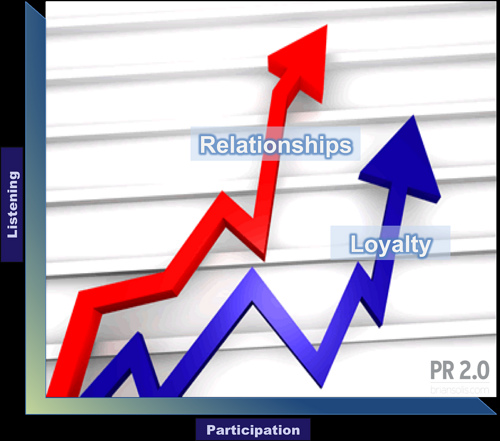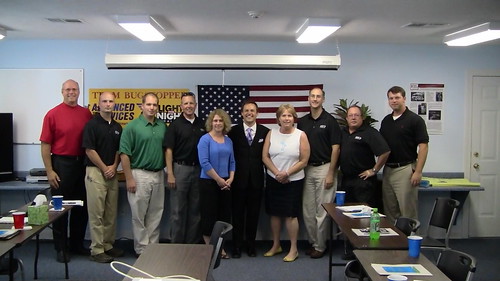
I love dining on cruise ships. It is one of the best aspects of a cruise. One particular dining experience stands out to me from a cruise my family took on Royal Caribbean Liberty. This experience stands out as much for the transformation I saw the staff go through as for the actual dining itself.
In our dining room we had a headwaiter, a waiter, and a waiter’s assistant, none of whom spoke English as a first language. The headwaiter was from South Africa, the waiter from Chile, and the assistant from Peru. Some of the conversations were very interesting; especially once you throw in my “hearing challenged” father-in-law.
The Issue
My family had trouble with the assistant waiter, whose primary responsibilities consisted of serving drinks and bread. He was very slow and sometimes would act as if he heard our requests but didn’t follow through. It seemed like some things were getting lost in translation. We weren’t sure if he didn’t care or if he really didn’t understand what we were saying. Regardless, this situation became very frustrating.
The Solution
The second night our South African headwaiter asked if the service was good. She was sincerely asking too, it wasn’t the pat “I have to ask this so I’m going to” kind of question, she really wanted to know. We let her know the problems we were having. She explained to us that the assistant was new and the staff sometimes had trouble communicating with the Peruvian employees, a lot gets lost in translation. She wasn’t overly apologetic; she simply expressed her gratitude for our feedback and said it would be taken care of. From that point on, we had fantastic service. The service was already out of this world, but this simple conversation made it even better. The assistant waiter never appeared surly or angry, we never would have known if anybody had spoken with him about our complaint.
The Valuable Lesson
“Be Like a South African Waiter,” means to always have an attitude of service. Always have the mindset of “How can I help.” As common a principle as this is, it is far too often overlooked or taken for granted. Our South African waiter was of service to us, the customers, and the assistant waiter, her employee. She wasn’t simply sucking up to my family with a false “the customer is always right” kind of attitude. She sincerely wanted to help everyone involved. As a result of her attitude, everyone was helped.
Maintaining a sincere attitude of service is valuable in all relationships. One of the quickest and most effective ways to improve self-perception is to find ways to help others. Make it a point to find a way to be of service to someone every day. It isn’t a difficult or daunting task. Some examples include:
- putting away your grocery cart
- emptying the dishwasher
- offering to help clean after a party, meeting, or gathering
The more you can be like a South African waiter, the better you will feel about yourself. As a result your relationships will improve, even those that are already good.






 This is a continuation of the series I have been writing on managing a successful business. Much of what I focus on is service. Providing good service is the number one key to success. By providing quality service, you are able to build trust. With this trust you form a strong relationship with your client/customer. The relationship establishes loyalty and generates strong word of mouth referral. No matter how adept an organization is with advertising and PR, without trust, relationships, loyalty, and strong word of mouth referrals, a business will struggle to find long term success.
This is a continuation of the series I have been writing on managing a successful business. Much of what I focus on is service. Providing good service is the number one key to success. By providing quality service, you are able to build trust. With this trust you form a strong relationship with your client/customer. The relationship establishes loyalty and generates strong word of mouth referral. No matter how adept an organization is with advertising and PR, without trust, relationships, loyalty, and strong word of mouth referrals, a business will struggle to find long term success.
 Regardless of the business you are in, success is predicated on the service you are able to provide. In most businesses there are so many options available to potential clients or customers, it can be difficult to determine what will make your business stand apart. Often, businesses will succumb to the newest fads and revert to reactionary change without thinking about the most critical ingredient in a company’s success, its ability to provide valuable service.
Regardless of the business you are in, success is predicated on the service you are able to provide. In most businesses there are so many options available to potential clients or customers, it can be difficult to determine what will make your business stand apart. Often, businesses will succumb to the newest fads and revert to reactionary change without thinking about the most critical ingredient in a company’s success, its ability to provide valuable service. I didn’t start my company because of an insatiable appetite for deal making and business prowess. I didn’t possess a lot of know how and I certainly had no business experience. I started it because I was willing to take responsibility for a drug and alcohol abuse treatment program on its last financial leg. I have acquired a great deal of experience along the way and I have learned a lot from many sources.
I didn’t start my company because of an insatiable appetite for deal making and business prowess. I didn’t possess a lot of know how and I certainly had no business experience. I started it because I was willing to take responsibility for a drug and alcohol abuse treatment program on its last financial leg. I have acquired a great deal of experience along the way and I have learned a lot from many sources.